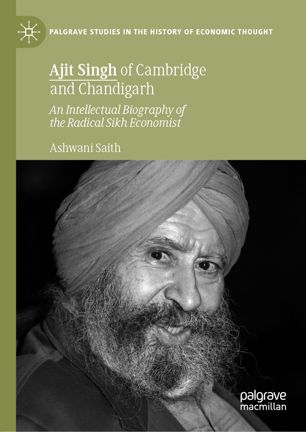

Most ebook files are in PDF format, so you can easily read them using various software such as Foxit Reader or directly on the Google Chrome browser.
Some ebook files are released by publishers in other formats such as .awz, .mobi, .epub, .fb2, etc. You may need to install specific software to read these formats on mobile/PC, such as Calibre.
Please read the tutorial at this link: https://ebookbell.com/faq
We offer FREE conversion to the popular formats you request; however, this may take some time. Therefore, right after payment, please email us, and we will try to provide the service as quickly as possible.
For some exceptional file formats or broken links (if any), please refrain from opening any disputes. Instead, email us first, and we will try to assist within a maximum of 6 hours.
EbookBell Team

0.0
0 reviewsThis book examines the life and work of Ajit Singh (1940-2015), a leading radical post-Keynesian applied economist who made major contributions to the policy-oriented study of both developed and developing economies, and was a key figure in the life and evolution of the Cambridge Faculty of Economics. Unorthodox, outspoken, and invariably rigorous, Ajit Singh made highly significant contributions to industrial economics, corporate governance and finance, and stock markets – developing empirically sound refutations of neoclassical tenets. He was much respected for his challenges both to orthodox economics, and to the one-size-fits-all free-market policy prescriptions of the Bretton Woods institutions in relation to late-industrialising developing economies. Throughout his career, Ajit remained an analyst and apostle of State-enabled accelerated industrialisation as the key to transformative development in the post-colonial Global South. The author traces Ajit Singh’s radical perspectives to their roots in the early post-colonial nationalist societal aspirations for self-determination and autonomous and rapid egalitarian development – whether in his native Punjab, India, or the third world – and further explores the nuanced interface between Ajit’s simultaneous affinity, seemingly paradoxical, both with socialism and Sikhism.
This intellectual biography will appeal to students and researchers in Development Economics, History of Economic Thought, Development Studies, and Post-Keynesian Economics, as well as to policy makers and development practitioners in the fields of industrialisation, development and finance within the strategic framework of contemporary globalisation.